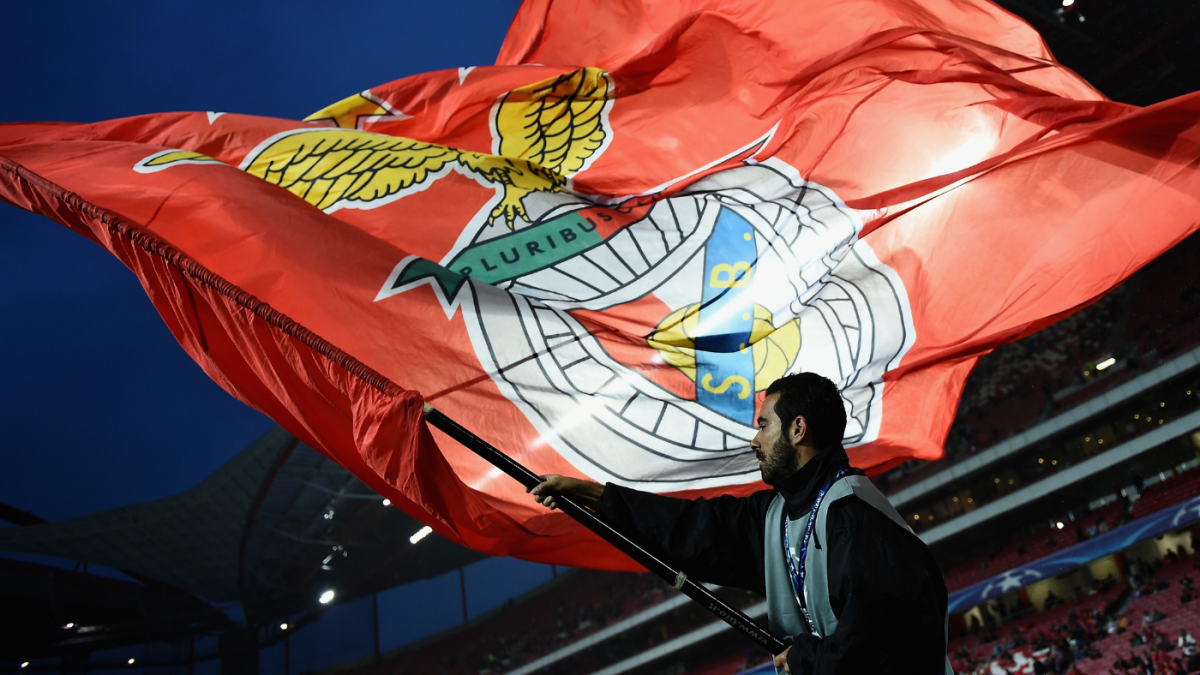

Portuguese giants Benfica have become the latest football side to receive US investment with Lenore Sports Partners (LSP) today finalizing its purchase of a 5.24% stake in the Lisbon club.
Jean-Marc Chapus, co-founder of private equity firm Crescent Capital, is the lead among the quartet of investors who have bought the stake in what is the first instance of American investment in a Portuguese side. In a statement Blackbridge Sports LLC, who connected LSP with Benfica’s holding company in 2022, said that the new minority owners “will play a pivotal role in further strengthening Benfica’s international presence, particularly in the strategically important U.S. market.”
Benfica rank among the most successful clubs in Portugal and indeed worldwide with a record 38 domestic league titles and two European Cups won in 1961 and 1962. In recent decades they have established themselves as one of the sport’s great talent factories, bringing the likes of Joao Felix, Enzo Fernandez and Darwin Nunez to prominence before selling them for sizeable returns.
“Completing this transaction was not without its challenges,” said Alexander Jarvis of Blackbridge, adding that it had been “a particularly complex deal to complete.
“Benfica is a global powerhouse in player development, having generated over €1.5 billion ($1.7 billion) in transfer sales since 2000 – yet it remains significantly undervalued. Blackbridge are proud to have originated this opportunity and aligned LSP with such a storied institution. We’re confident this new partnership will support Benfica’s continued growth on and off the pitch.”
Chapus, who serves on the advisory board of the Milwaukee Brewers (owned by his co-founder at Crescent Capital Mark Attanasio), is joined by Elliot Hayes and Omar Imtiaz. Hayes is a former investor in French side Nice and becomes one of the first African-American investors in two top European clubs. Imtiaz was also part of the Nice hierarchy prior to its sale to Sir Jim Ratcliffe.
The investment is understood to have been worth between $20.8 million and $23.1 million (€18 million to €20 million). Over three percent of the stake was secured through the auction of shares which are publicly traded on the Portuguese stock market.
What it means for Benfica
The investment comes at a significant moment for Benfica, who pushed Sporting close but ultimately fell short in the race for last season’s Portuguese title. That will mean Bruno Lage’s side having to go through qualifying to get access to the riches that come with involvement in the Champions League league phase, estimated to be worth around $50 million at minimum. Last season’s run to the round of 16 is believed to have been worth $80 million.
There is also the question of how Benfica adapts to the particularly competitive market for South American talent. Estadio da Luz has long established itself as a bridge point for players moving from Argentina and Brazil with an eye on a future move to La Liga or the Premier League. It proved to be extremely lucrative for Benfica, the $1.7 billion Jarvis notes above often coming from players who had been brought across the Atlantic for a few million.
Angel Di Maria, David Luiz and Ramires were among the first players to follow that path, in recent years they were followed by Fernandez. Gianluca Prestianni, once compared to Lionel Messi, could be the next but Benfica must now fight with the sort of teams they used to sell their young stars to.
Real Madrid have spent heavily on bringing Franco Mastantuono and Endrick directly to Spain, as Barcelona did with less success in Vitor Roque’s case. The Premier League too is fighting for talent in South America, Willian Estevao going from Palmeiras to Chelsea and Claudio Echeverri from River Plate to Manchester City in 2024 as Julian Alvarez had two years earlier.
It is notable that of the three Argentines on their roster last season one was Prestianni and two, Di Maria and Nicolas Otamendi, were veterans returning to Portugal at the back end of their careers. Benfica retain an extraordinarily productive academy, from which Antonio Silva looks to be the next breakout star, but they appear to already be adapting to the new reality of the market. Sprinkled in with familiar Brazilian and Argentine acquisitions over the last two seasons are players from Turkey, the Netherlands, Norway and Germany. Perhaps in years to come that will be viewed as another case of Benfica getting ahead of the market. What is clear right now is that the Portuguese giants are having to adapt to competition.
This news was originally published on this post .





Be the first to leave a comment